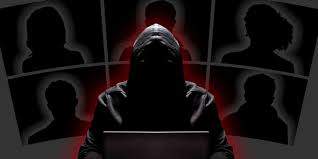Zoombombing Harms the Alcoholics Anonymous Community

Philip McGrade was attending an Alcoholics Anonymous meeting over the videoconferencing service Zoom when a message suddenly appeared on the screen. “Hitler did nothing wrong,” it read. Next, scenes from Leni Riefenstahl’s Nazi propaganda film “Triumph of the Will” started playing. A person yelled “Allahu akbar,” and pornography popped into view. He logged out, joined a different AA meeting and within a few minutes a similar attack began there, too.
“It’s a very sort of cheap shot to try and disrupt something which is a community-based resource that’s helping people to turn their lives around,” said Mr. McGrade, who lives in Los Angeles and has been sober for 37 years. “They don’t fully grasp that this is something that people really need.”
Mr. McGrade was a victim of “Zoombombing,” in which people hijack a video teleconference to harass others with offensive and disturbing content. At a time when human contact must be limited, Zoom’s adoption as a go-to platform for work meetings, school lessons and gatherings of friends highlights both the power of the technology to connect us and the ways in which it is a far-from-perfect substitute for meeting in person.
Perhaps nowhere is this more evident than in the recovery community. Having to restart a Zoombombed work meeting might be disturbing, and it is certainly a disruptive nuisance, but most meetings probably aren’t serving as part of a broader support system with such high stakes. Recovery groups like AA emphasize that participation in meetings is private—any intrusion can undermine the sense of anonymity.
“[AA] meetings are what is so crucial to many people’s sobriety,” a 48-year-old recovering alcoholic said. (AA recommends its members maintain anonymity when talking to the media.)
She said she was initially hesitant about attending AA meetings online, but when all the meetings in her area shut down, it was the only option left. Though she’d never used Zoom before, she has in recent weeks attended dozens of online meetings.
She was optimistic about the potential for online meetings to serve in place of in-person ones. But twice now she has been in meetings where she has been subjected to racist and pornographic content. “It was shocking and upsetting,” she said. “I just logged right off.”
A Zoom spokeswoman said in a statement, “We are deeply upset to hear about the incidents involving this type of attack, and we strongly condemn such behavior. We have been actively educating our users on how they can protect their meetings and help prevent incidents of harassment.”
Discussing the surge in privacy problems and the harassment of users on his platform, Zoom Chief Executive Eric Yuantold The Wall Street Journal, “I really messed up as CEO, and we need to win their trust back. This kind of thing shouldn’t have happened.”
The company recently published a blog post outlining various settings that give users more control over their meetings, such as how to limit screen sharing and who can join the meeting. Zoom is under pressure to do more, including updating its default setting to limit screen sharing to only the host. And it recently made it so password protection is now on by default.
But upholding one of the 12 traditions of the AA program means making meetings as easy to access as possible. Anyone with the desire to stop drinking should be able to walk right in—literally or virtually. That’s part of what makes the program so effective, said Keith Humphreys, an addiction researcher and professor of psychiatry at Stanford University.
“Part of the genius of AA is they understood the population. You really couldn’t have any excuse [to not participate],” he said. “This kind of stuff undermines that.”
Dr. Humphreys said research shows telehealth can be as effective as in-person meetings for established patients. But people in AA face additional hurdles—especially now. Those in recovery are likely dealing with higher stress and social isolation in the pandemic, and both can be triggers for relapses. Videoconferencing brings to the fore elements that are less of a concern when you’re in person.
“Someone could take your picture. They could screenshot you in an AA meeting,” Dr. Humphreys said. “That’s a reasonable thing for people to be concerned about.”
On top of that, physical touch is an element of AA meetings: It’s common for people to hug hello. Many groups hold hands at the end of meetings and say the Serenity Prayer.
“That’s lost. It has to be lost right now,” Dr. Humphreys said. “But, you know, those things really matter.”
A spokeswoman for the General Service Office of Alcoholics Anonymous acknowledged intrusions occur in some AA meetings: “When these challenges arise, AA groups have adapted and adjusted online security settings to strive to create an environment in which the alcoholic can find and maintain recovery from alcoholism.”
Some individual AA groups have started notifying members on their websites about Zoombombing and issuing best practices on how to prevent disruptions and handle them in the moment. Here’s our own guide to hosting and managing videochat apps.
One AA member who works in information security wrote a 4,000-word Zoom guide after experiencing the online harassment first-hand. Now that his Google doc is complete, he has been encouraging others to share it.
“We are in a race here, trying to prevent groups from going xenophobic or dark or unlisted or behind an unlisted password—instead of just configuring themselves correctly in the first place,” he wrote. “Once these meetings go dark, we can’t reach them easily…and neither can newcomers. That’s why I feel that this is important work.”
Photo: PHOTO ILLUSTRATION BY EMIL LENDOF/THE WALL STREET JOURNAL; PHOTOS: ISTOCK




